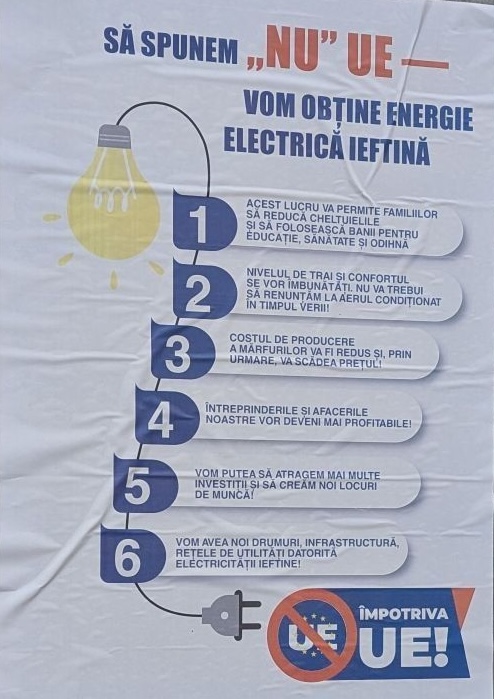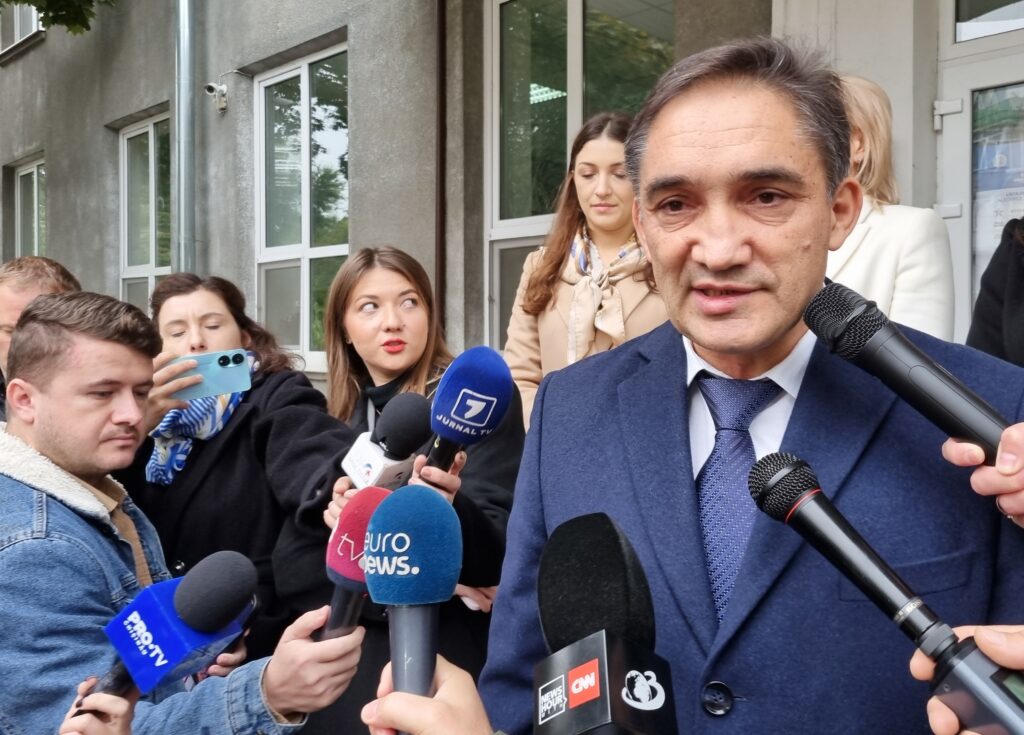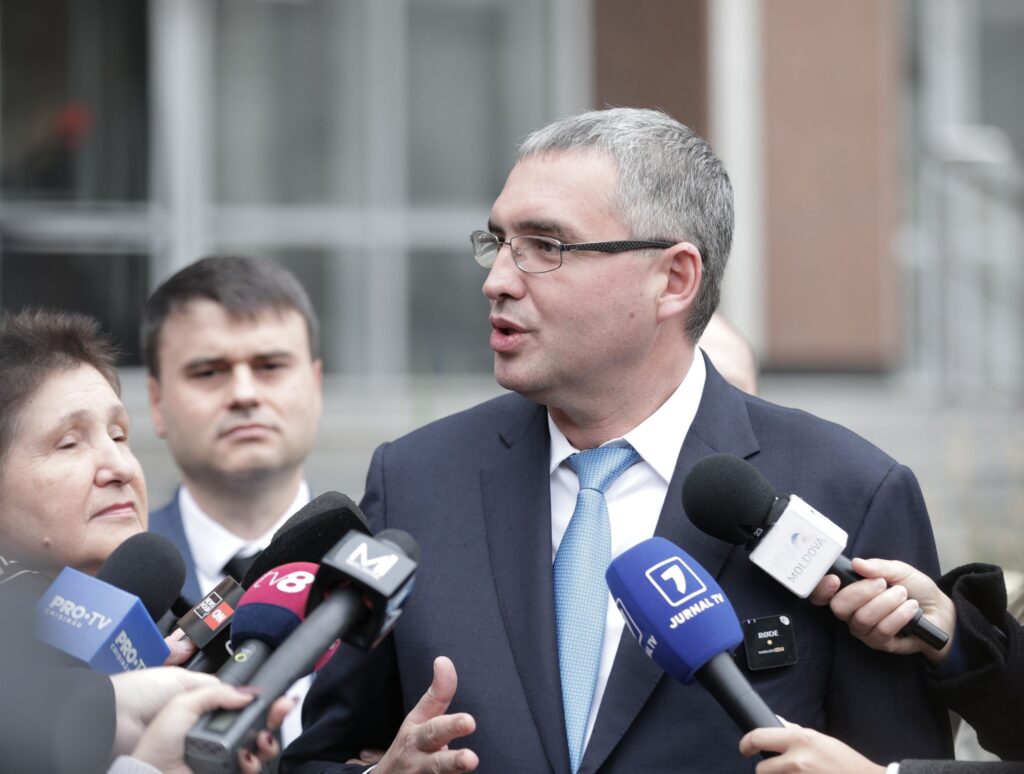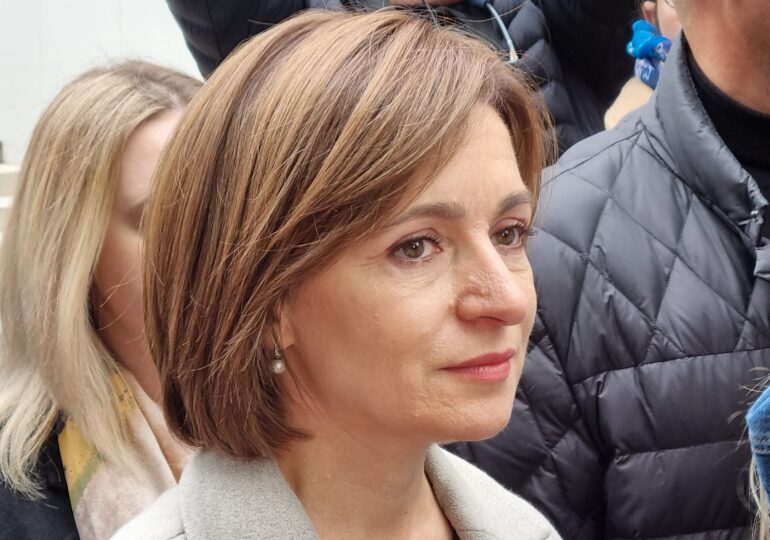A post made by sociologist Vasile Cantarji on social networks shows that the „bought” votes of Ilan Șor had a significant impact on the elections in Moldova and the referendum.
The expert argues that if we do not take into account the 250,000 manipulated votes – Maia Sandu stated in an official declaration that it could be 300,000, the local police announced that they are investigating payments for 130,000 voters – then the current president would have won a new term in the first round with 52.7%, and the referendum would have passed with a support of 63%.
The key to verifying these claims would be the opinion polls conducted before the elections - some institutes announced support for the referendum of over 55%. So, the difference between the estimation given by the polls and the final score would be exactly the percentage of votes manipulated by Ilan Șor's network.
Although Maia Sandu won with over 42%, and the constitutional referendum passed, there was great dissatisfaction both in Moldova and Romania regarding the close score between the European camp and the pro-Russian one.
But the dissatisfaction is not justified by anything. In Moldova, the pandemic and the war in Ukraine have left deep traces. Inflation was 30%, the price of energy soared, people have real problems in ensuring their basic needs from month to month.
The Cold in Moldova
Elena Calistru, representative of the non-governmental organization Funky Citizens, accredited as an international observer in the Moldovan elections, described clearly and objectively the situation in Moldova, which is rarely discussed in the Romanian press and on social networks.
"It's cold and unheated in many places in Moldova. It has been a cold and unfriendly period, as if a reminder that a cold wind is coming from the eastern steppes. But the theme... expensive energy, the fact that Europe means expensive gas, the accusations that Maia Sandu wants people to freeze in their homes is a prevalent theme," wrote Elena Calistru in a Facebook post, a day after the elections.
"As I was going to meet a friend who provides support services for cancer patients, I saw a poster... with a propaganda message. But beyond the propaganda, there is a reality experienced by many residents, the reality of that penetrating cold that you cannot appease, the cold... that you cannot escape and that reminds you that things are not good. This can be seen in the cars with wood at the edge of Chisinau, in the unheated schools in smaller towns, but also in the concern of Doina who told me that she doesn't know where to get 200 euros to heat the space for the cancer patients undergoing treatment," recounted Elena Calistru, an observer in the Moldovan elections.

A Miracle That the Referendum Passed
The deeper you delve into the issues of society in the neighboring country, the more you realize that it is rather a miracle that the referendum passed.
If we want Moldova to be well, we must understand that its economy needs to be supported to provide a decent living for its inhabitants. It doesn't work without support, and not just the kind that falls into the category of <teach a man to fish>, ... because many countries in Europe have already absorbed its workforce
Elena Calistru, Funky Citizens
The economic, political, and social context is totally unfavorable to the pro-European camp.
"The result of the referendum was a cold shower," said historian Armand Goșu, a knowledgeable expert on the Russian and ex-Soviet space, in a discussion with spotmedia.ro.
But how the first round of elections and the popular consultation will influence the political future of Maia Sandu is hard to outline now, even though there are only two weeks left until the decisive vote.

The results recorded on Sunday show that the votes obtained by pro-Russian candidates are more than those obtained by Maia Sandu and pro-European candidates.
The Western camp has 47.5% support, if we add up the votes of candidates promoting EU accession, while the camp oriented towards Russia has 53.5%. But this is a strictly arithmetic calculation, while reality is more nuanced.
An Unprecedented Attack on Democracy
Armand Goșu says that "Maia Sandu still has a way to win the presidential elections, although there will be a lot of emotion and a tough fight."
"I don't want to make a judgment beforehand. I might be wrong. However, if we look at what happened four years ago, the situation is somewhat similar," added historian and writer Armand Goșu.
Shortly after the results were clear, and the referendum was validated, Maia Sandu made a public statement accusing the strong involvement of Kremlin agents in the electoral process in Moldova.
"Dear citizens, Moldova has faced... in recent months an unprecedented attack on democracy. Criminal groups, together with foreign forces hostile to us, have attacked our country with tens of millions of euros, propaganda, with the most despicable means to lead our country into an area of instability," said Maia Sandu in the first official statement after the end of the vote.
"We have evidence and information... that the criminal group's target was to buy 300,000 votes. The scale of the fraud is unprecedented. Their goal was to compromise a democratic exercise, their goal was to instill fear and panic in society," added the Moldovan president.
Usatîi's Votes, the Path to Victory
Also, in the same public statement, Maia Sandu made a direct appeal to the voters of Renato Usatîi, a bombastic politician with a series of legal issues in Moldova and Russia, mayor of the city of Bălți.
"I address those who voted for Renato Usatîi. We know that we have differences of opinion, but at the same time, I know that you, like me, do not want the return of bandits to power, bandits who come to take over everything, to build their own kingdom in our country, and to retaliate against anyone who stands in their way... The truth is that both I and you want to be free in our country, to speak, to move, to be respected, not to be trampled on," declared Maia Sandu.

Historian Armand Goșu recalled an episode from the beginning of the campaign where Usatîi publicly announced that this time he would not support Maia Sandu, "but things can change, and anyway he will not give any signals to his supporters until a few days before the elections."
It is also noteworthy that the Moldovan president addressed the voters of Usatîi directly and not the mayor of Bălți, attempting to establish a direct connection with them.
This thing with Russian interference, with the bandits. I don't know who advises Maia Sandu. It doesn't seem to me the smartest thing possible. This is about Romania. It doesn't concern Moldova.
Armand Goșu, historian
In the next two weeks, it is expected that the operations led from Russia by Ilan Șor will intensify, as well as those of the government in Chișinău, in an attempt to discourage some voters from selling their votes in the second round.
Despite the complicated situation, Maia Sandu has the possibility to win a second term, but the prospect of an easy victory for PAS (Party of Action and Solidarity), the party from which the president originates, in next year's parliamentary elections is unlikely.

